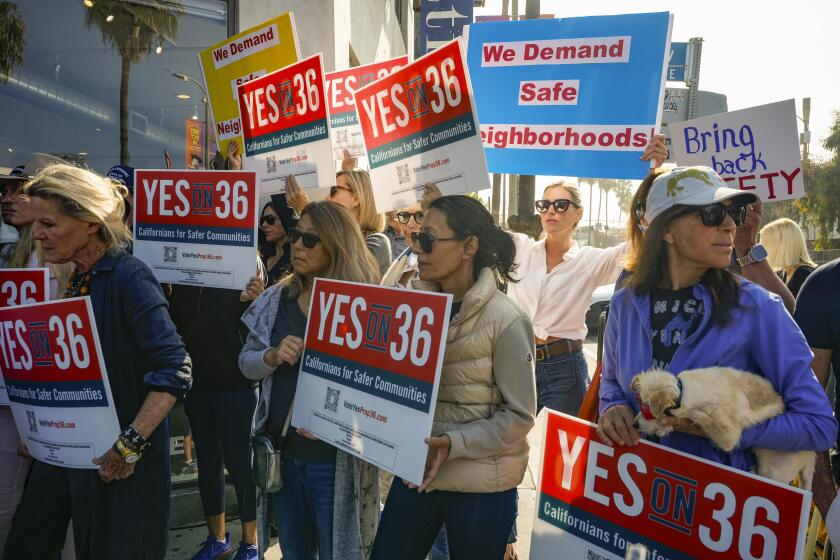Proposition 36 has emerged as a significant focal point in the political landscape of California, primarily because of its controversial stance on crime. Backed by the political committee Californians for Safer Communities, this initiative aims to impose stricter penalties for crimes involving retail theft and fentanyl. The campaign has garnered unexpected attention due to its recent $1 million donation to the California Republican Party, a move that has raised eyebrows about its implications on the bipartisan image that the campaign has been attempting to promote. As local Democratic leaders express support for the measure, including endorsements from some notable mayors and officials, the backing from the state GOP complicates the narrative, contrasting sharply with the opposition from prominent Democrats, including Governor Gavin Newsom.
The confidence of Proposition 36 proponents is illustrated not only through considerable financial backing but also by public sentiment. A recent poll indicated robust support from a majority of likely voters in California, who see the measure as a necessary response to rising crime rates. Political science expert Thad Kousser noted that the unprecedented decision of the campaign to donate funds to the Republican Party prior to the election demonstrates a belief that Proposition 36 is likely to succeed at the ballot box. With campaign contributions exceeding $13.3 million as of early October, the initiative has mobilized substantial backing, contrasting with opposition fundraising of about $5.9 million.
The coalition supporting Proposition 36 is largely conservative and includes local prosecutors alongside significant contributions from major retailers like Walmart. Advocates emphasize that this initiative is about building a safer community rather than reenacting stringent political policies. Yet, opponents including progressives and reformists argue that the endorsement from the Republican Party highlights an insincere approach to addressing crime, with fears that it could lead to regressive and punitive measures reminiscent of earlier, harsher criminal justice policies in California.
Moreover, while the proposition has been marketed as a bipartisan effort, contrary opinions have emerged regarding its true nature and intent. Supporters, including mayors from some of California’s largest cities, assert that tough policies are essential to address public safety crises linked to drug-related crime and homelessness. Meanwhile, the Democratic opposition claims that Proposition 36 would lead to increased incarceration rates among marginalized communities without addressing the underlying issues. This contention suggests a deeper divide in the way the political landscape perceives crime and public safety in California.
In addition to the immediate ramifications of Proposition 36, the proposal’s implications on previous legislation such as Proposition 47 are significant. Passed in 2014, Proposition 47 sought to reduce the penalties for non-violent theft and drug offenses by reclassifying such misdemeanors. Proposition 36 would counter this, suggesting a return to more severe penalties and potentially greater state expenditures tied to increased incarceration rates. Critics, including Governor Newsom, warn that such changes could exacerbate inequalities in the criminal justice system, particularly affecting Black and Latino populations.
The complexity of the Proposition 36 debate encapsulates broader national conversations around crime, punishment, and public safety. As differing factions within California’s political framework mobilize their respective bases in the lead-up to the November 5 election, the outcome could signal shifting attitudes. If the measure succeeds, it would not only reshape California’s criminal justice landscape but may also influence criminal justice reform discussions in other states, sparking either a resurgence of tough-on-crime policies or a possible reconsideration of such approaches within the context of modern-day challenges.

